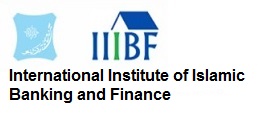Master of Science in Islamic Banking and Finance (M.Sc. IBF)
Preamble
Master of Science in Islamic Banking and Finance (MIBF) is aimed at producing personnel who are very versatile in the principles, concepts and practices of Islamic banking and finance through provision of relevant education and training for practitioners in the banking and finance industry so as to be conversant with all aspects of the operations of Islamic banking. The M. Sc. Islamic Banking and Finance programme is taught through an innovative range of interactive learning methods and draws upon our extensive network of professional and academic institutions around the globe, featuring guest lectures from our collaborating institutions. The programme is available on part time and full time basis.
Objectives
- To provide a firm knowledge of the working of the Islamic economic system, with particular emphasis upon the theory and practice of Islamic banking and finance.
- To develop the students’ capacity to apply the knowledge and skills they have acquired to the solution of theoretical and applied problems in banking and finance.
- To provide a firm foundation of knowledge about the workings of domestic and international financial markets, institutions and systems, and developments in central banking and regulatory practices around the world.
- To equip students with appropriate tools of analysis to allow them to tackle contemporary issues and problems facing the international banking and financial community.
- To provide opportunity for fresh Graduates in related disciplines to acquire in-depth knowledge and skills in Islamic economic, banking and finance in order to prepare them for a higher academic endeavors and a career job in the Islamic banking and finance industry.
Learning Outcome
At the end of the programme, Graduants would be able to understand the rules, principles and practices of Islamic financial institutions. Moreover, Graduants would be able to relate theories of Islamic banking and finance to economics, finance, accounting, management, law, shari’ah and other related disciplines.
Programme Structure
A candidate is required to complete minimum of 12 courses of 2 credit hours each, for a total equivalent of 24 credit hours. This shall include 6 core courses and at least 6 elective courses. Total credit hours upon graduation will be 30, which includes 6 credits for research dissertation in the field of Islamic banking and finance.
Core Courses – First Semester
| Course Code | Course Title |
| IBF 8201 | Islamic Economics I |
| IBF 8203 | Principles of Islamic Jurisprudence |
| IBF 8205 | Applied Statistics |
| IBF 8207 | Financial Economics |
Electives
| IBF 8209 | Investments in Islamic Banking and Finance |
| IBF 8211 | Accounting for Islamic Financial Institutions |
| IBF 8213 | Islamic Capital Markets |
| IBF 8215 | Islamic Wealth Management |
| IBF 8217 | Fiscal Policy and Redistribution in Islam |
| IBF 8219 | International Finance |
Core Courses – Second Semester
| IBF 8202 | Islamic Economics II |
| IBF 8204 | Islamic Financial System |
| IBF 8206 | Principles of Islamic Contract |
| IBF 8208 | Research Methodology and Seminar in Economics and Finance |
Elective Courses – Second Semester
| IBF 8210 | Principles and Practices of Islamic Insurance |
| IBF 8212 | Islamic Banking Products and Services |
| IBF 8214 | Ethics and Governance in Islamic Financial Institutions |
| IBF 8216 | Islamic Human Capital Development |
| IBF 8218 | Corporate Finance |
| IBF 8220 | Risk Management in Islamic Financial Institutions |
| IBF 8600 | Dissertation |
Duration of Study
Full-Time – 4 Semesters (2 Session)
Part-Time – 6 semesters (3 Sessions)
Admission Requirements
- A good First Degree (CGPA: 3.5 or above) in Accounting, Business Administration, Management, Islamic Studies, Islamic Law, Economics, Finance, Banking, or Insurance, obtained from Bayero University or any other recognized institution.
- A good M. Sc. Degree (CGPA 3.0 or above) in Accounting, Business Administration, Management, Islamic Studies, Islamic Law, Economics, Finance, Banking, or Insurance, obtained from Bayero University or any other recognized institution.
- A relevant background plus a good Masters degree in Islamic Banking and Finance (CGPA: 3.5 or above) obtained from Bayero University or any other recognized institution.
- A relevant background in Economics, Business Administration, Accounting, Law, Islamic Studies, etc., plus a good PGD in Islamic Banking and Finance (CGPA: 3.5 or above) from Bayero University or any other recognized institution.
- Any other qualification deemed equivalent to the above.
Graduation Requirements
A candidate is expected to earn a minimum of 30 credits which shall comprise of 24 credits from examined courses taught in a classroom environment, and 6 from research Dissertation in relevant area of Islamic Banking and Finance. The final year Dissertation is subject to oral examination and a candidate, in addition, is expected to present at least two seminars before an oral examination is arranged for him.





